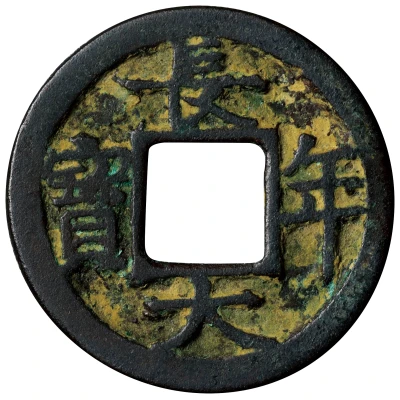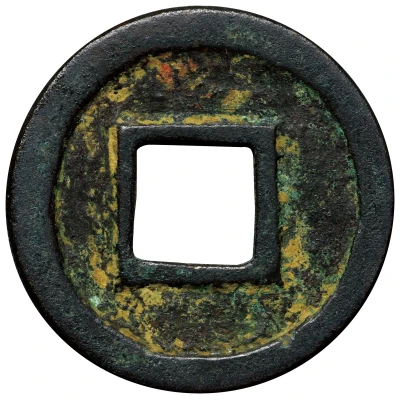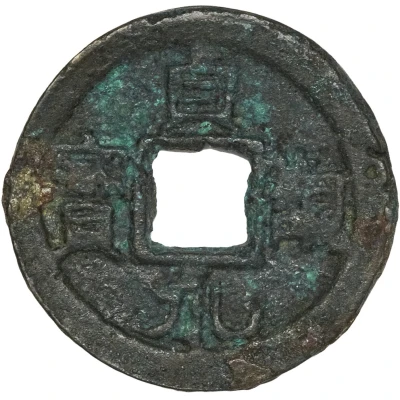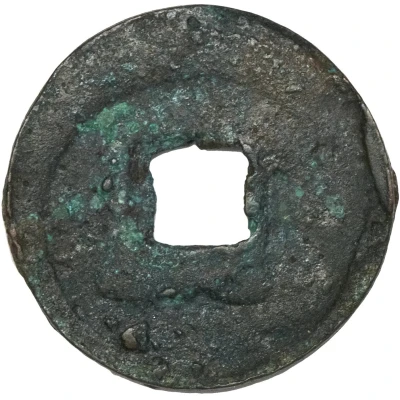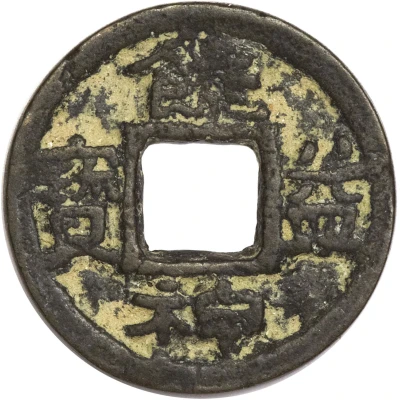
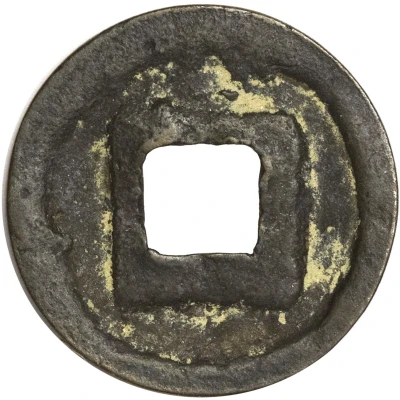

© Heritage Auctions
1 Mon "Nyōyakushinpō" ND
| Copper | 2.1 g | 19 mm |
| Issuer | Japan |
|---|---|
| Emperor | Seiwa (858-876) |
| Type | Standard circulation coin |
| Years | 859-870 |
| Value | 1 Mon |
| Currency | Mon (683-1953) |
| Composition | Copper |
| Weight | 2.1 g |
| Diameter | 19 mm |
| Shape | Round with a square hole |
| Technique | Cast |
| Demonetized | 25 November 0987 |
| Updated | 2024-10-06 |
| Numista | N#141328 |
|---|---|
| Rarity index | 95% |
Reverse
Blank.
Edge
Plain
Comment
Sample coin is DHJ# 1.51
Nyōyakushinpō is the most uncommon among 12 types of imperial coins.
Also called Nyōekishinpō and Jōekishinpō (饒益神宝 in modern lettering)
Interesting fact
The 1 Mon "Nyōyakushinpō" coin from Japan, which was minted between 859 and 870, features a unique design that reflects the country's cultural and religious beliefs during that time period. The coin's obverse side depicts a stylized image of a phoenix, which is a symbol of good fortune and prosperity in Japanese culture. The reverse side features a representation of a sacred mountain, which is believed to be Mount Fuji, the highest mountain in Japan and a sacred site for the Shinto religion. The coin's design serves as a representation of the harmony between nature and humanity, and it is a testament to the rich cultural heritage of Japan during the Heian period.
